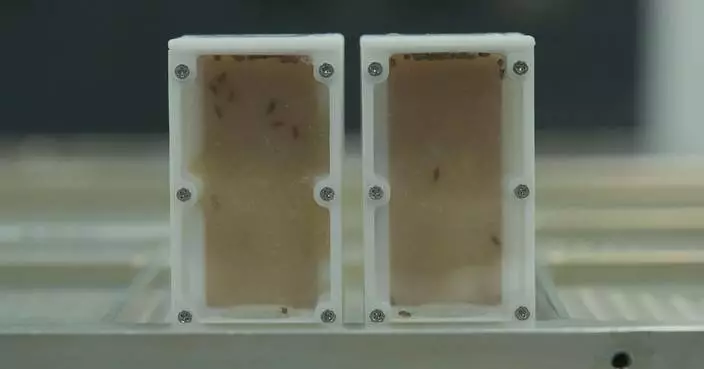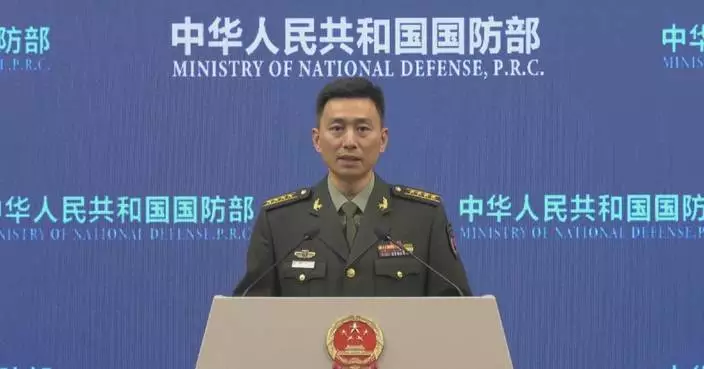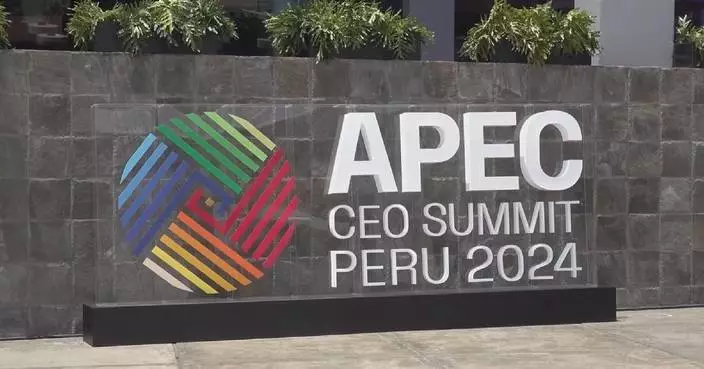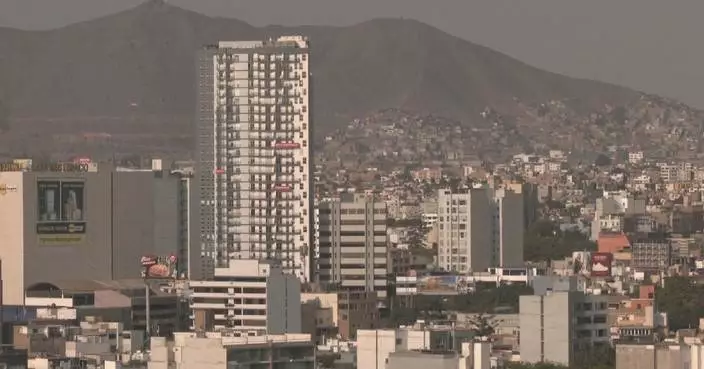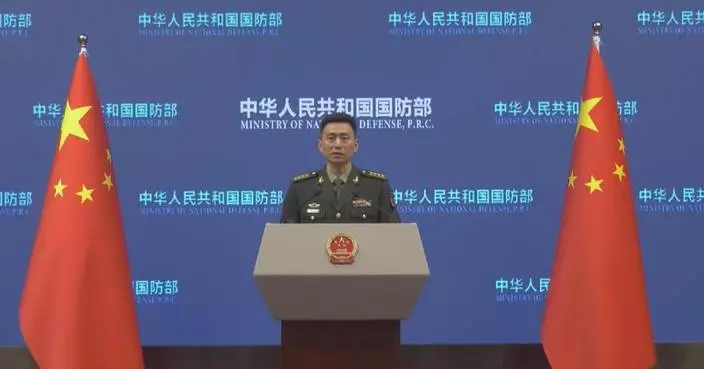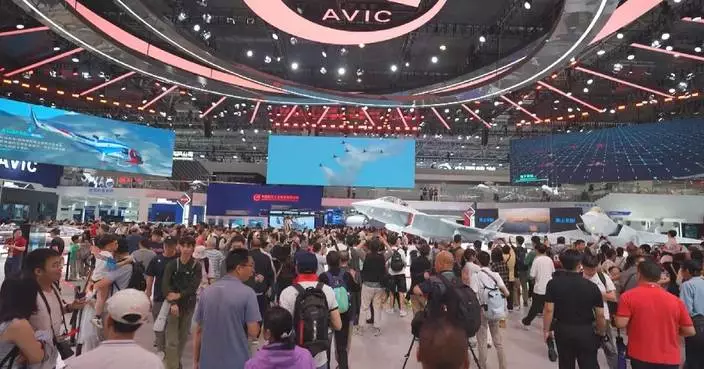China and Peru should align development strategies, and further tap the potential for cooperation, to open up new prospects for pragmatic cooperation, Chinese President Xi Jinping said on Thursday when holding talks with Peruvian President Dina Boluarte in Lima, Peru.
Xi arrived in the Peruvian capital earlier in the day to attend the 31st APEC Economic Leaders' Meeting, and pay a state visit to the Latin American country at the invitation of Boluarte.
In the talks with Boluarte, Xi said that China and Peru have advanced with the trend of the times, and upheld equality, mutual respect, mutual trust, and mutual learning.
China-Peru ties have become a model of solidarity and cooperation among countries of different sizes, systems, and cultures, he added.
Over the past 53 years since the establishment of diplomatic relations between the two countries, especially after his first state visit to Peru in 2016, trade, investment and cooperation between China and Peru have seen rapid growth through joint efforts of both sides, bringing tangible benefits to the people of the two countries, Xi said.
He called on the two countries to improve and upgrade bilateral pragmatic cooperation, and promote the China-Peru comprehensive strategic partnership onto new heights.
The two sides should align development strategies, and further tap the potential for cooperation, to open up new prospects for pragmatic cooperation, Xi said.
It is necessary to strengthen the dual drivers of trade and investment, enhance the coordinated development of both traditional and emerging industries, and promote the integration of industrial and supply chains, he stressed.
Xi said that China will continue to increase import of quality agricultural specialties from Peru, and encourage qualified Chinese enterprises to make investment and start businesses in Peru, to make due contributions to local development.
The two countries should make coordinated efforts to advance cooperation in traditional aspects such as mining and energy, infrastructure, as well as transportation and communications, expand cooperation in digital economy, artificial intelligence, green shipping, electric vehicles, photovoltaic industry and other emerging sectors, he said.
Talking about the Chancay Port that Xi and Boluarte inaugurated via video link later in the day, Xi said that Chinese enterprises have overcome challenges to complete the first phase of the Chancay Port project, fully demonstrating China's commitment to a long-term strategic cooperation with Peru.
China is ready to work with Peru to fully leverage the geographical advantage of the port, and build a new land-sea corridor between China and Latin America with Chancay Port as a starting point, so as to explore a multi-dimensional, diverse and efficient network of connectivity spanning from coast to inland, from Peru to other countries in Latin America, thus boosting the overall development and integration of Latin America and the Caribbean, he said.
Xi said that China supports the establishment of sister city relationship between the eastern Chinese city of Suzhou and the Peruvian coastal city of Chancay, and stands ready to join hands with Peru to exchange experience on industrial park construction, and expand cooperation in cross-border trade in services, e-commerce and other sectors, he said.
China and Peru should enhance the exchange of governance experiences, deepen strategic mutual trust, and firmly support each other's core interests and major concerns, Xi said, adding that both countries should work to explore the establishment of a global network for dialogue and cooperation among civilizations.
Noting that the Asia-Pacific economies are deeply integrated, Xi said that it serves the common interests of the Asia-Pacific family and the Global South to strengthen solidarity and cooperation, as well as maintain regional stability and prosperity.
He called for joint efforts of all parties to make the 31st APEC Economic Leaders' Meeting a success, to advance the building of an Asia-Pacific community with a shared future.
For her part, President Boluarte noted that China has long been Peru's most important trading partner, especially after the two countries started the Belt and Road cooperation.
China-Peru cooperation has yielded fruitful results across various sectors, fully demonstrating both countries' firm commitment to mutually beneficial cooperation and shared development, she said.
During President Xi's visit, the two sides were expected to sign several key cooperation agreements, including the protocol on upgrading the bilateral free trade agreement, which will strongly advance bilateral economic and trade relations and boost collaboration in various fields, Boluarte said.
She stressed that the Chancay Port will become a crucial bridge between Latin America and Asia and a significant engine for Peru's economic growth, which will greatly enhance efficient and convenient connectivity and trade between Peru, other Latin American countries, China, as well as Asia, thus supporting sustainable development for both nations and other countries in the region.
Peru welcomes Chinese enterprises to make investment and do business in the country, and participate in important cooperation projects in sectors such as infrastructure, resources and energy, and transportation, Boluarte said.
She reiterated that Peru firmly adheres to the one-China principle.
President Xi's visit will undoubtedly become an important milestone in the bilateral relationship, opening new chapters in the Peru-China comprehensive strategic partnership, and paving the way for a more enduring and prosperous future for the people of the two countries, she said.
Prior to the talks, President Boluarte held a grand welcome ceremony for visiting President Xi in front of the Government Palace, the official residence of the president of Peru.
After the talks, the two heads of state jointly witnessed the signing of a cooperation plan on promoting the building of the Belt and Road Initiative, and a protocol on upgrading the bilateral free trade agreement, and the exchange of multiple bilateral cooperation documents on economy and trade, industrial investment, industrial parks, education, green development and other sectors.
The two sides also issued a joint statement on deepening their comprehensive strategic partnership.
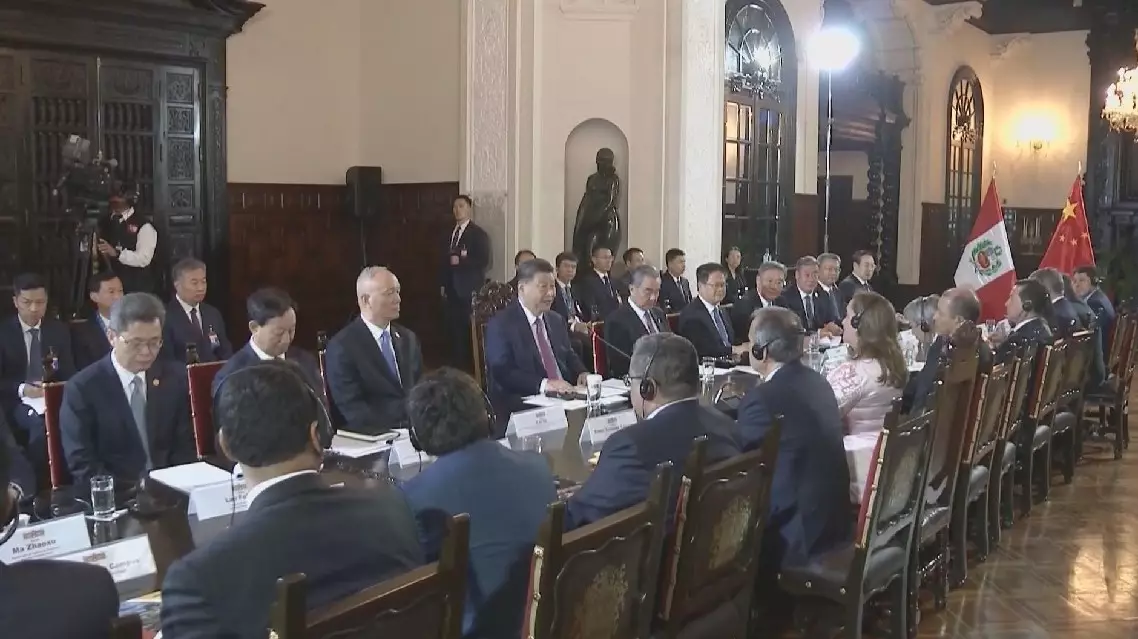
Xi calls on China, Peru to further tap potential for cooperation
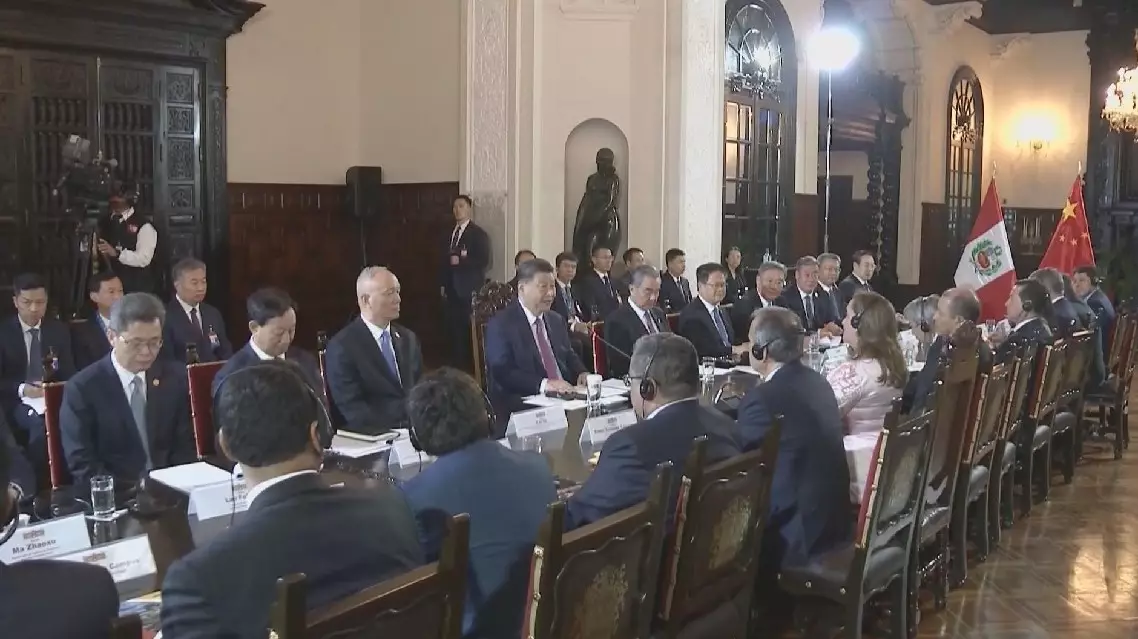
Xi calls on China, Peru to further tap potential for cooperation
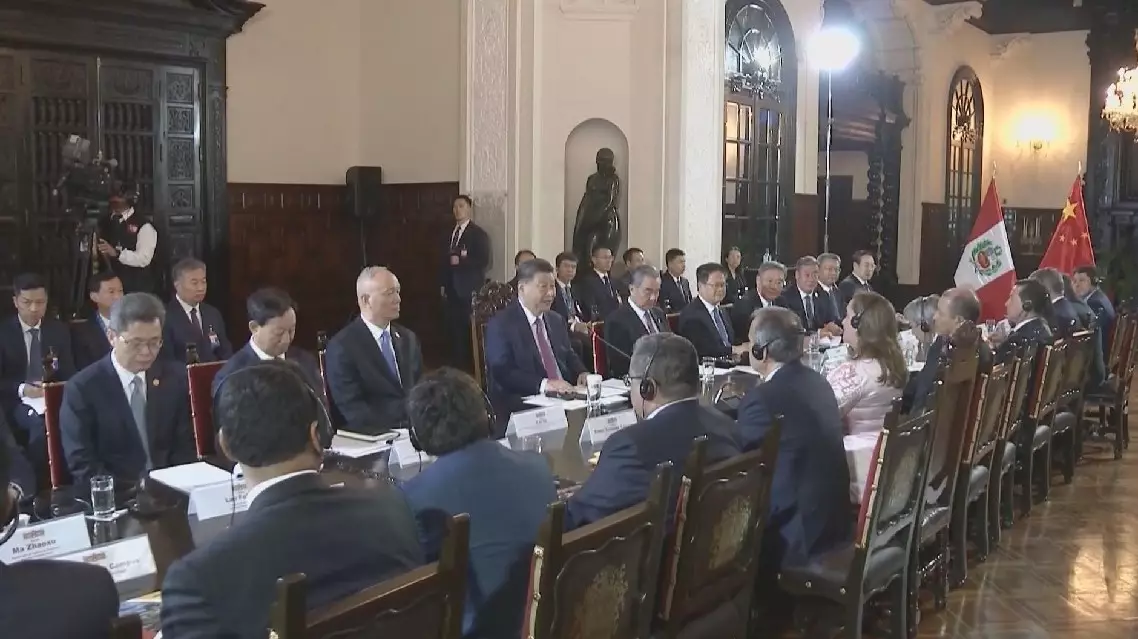
Xi calls on China, Peru to further tap potential for cooperation
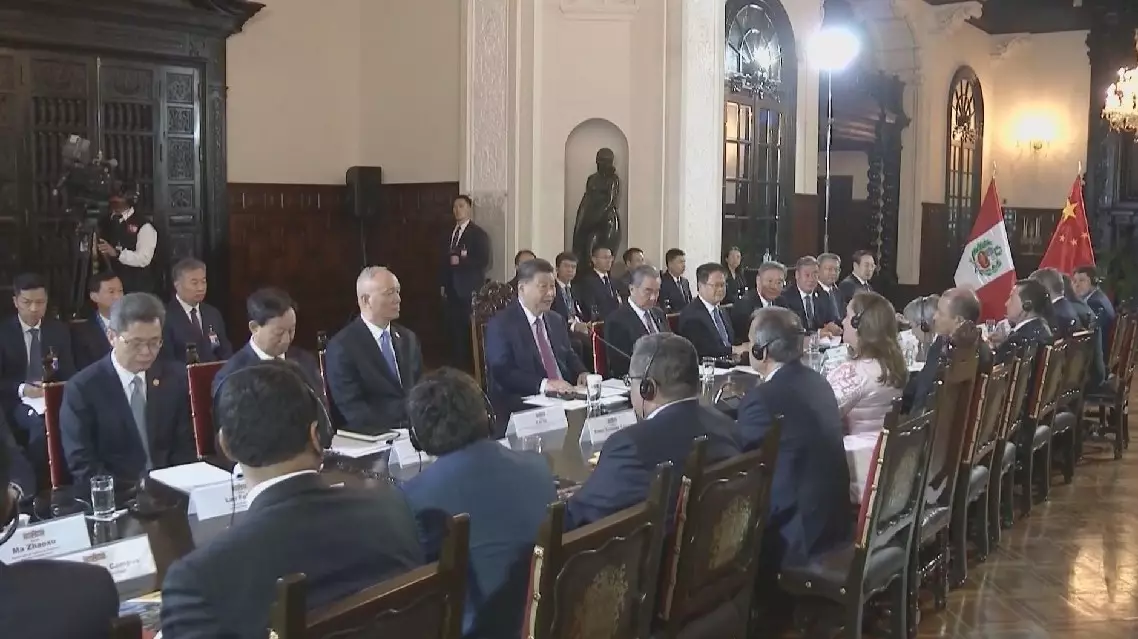
Xi calls on China, Peru to further tap potential for cooperation



